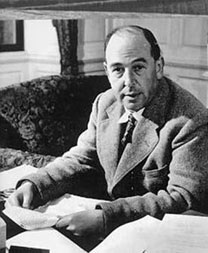
Some years ago I got up one morning intending to have my hair cut in preparation for a visit to London, and the first letter I opened made it clear I need not go to London. So I decided to put the haircut off too. But then there began the most unaccountable little nagging in my mind, almost like a voice saying, “Get it cut all the same. Go and get it cut.” In the end I could stand it no longer. I went. Now my barber at that time was a fellow Christian and a man of many troubles whom my brother and I had sometimes been able to help. The moment I opened his shop door he said, “Oh, I was praying you might come today.” And in fact if I had come a day or so later I should have been of no use to him.It awed me; it awes me still. But of course one cannot rigorously prove a causal connection between the barber’s prayers and my visit. It might be telepathy. It might be accident …The question then arises, “What sort of evidence would prove the efficacy of prayer?” The thing we pray for may happen, but how can you ever know it was not going to happen anyway? …“God,” said Pascal, “instituted prayer in order to lend to His creatures the dignity of causality.” But not only prayer; whenever we act at all He lends us that dignity. It is not really stranger, nor less strange, that my prayers should affect the course of events than that my other actions should do so …For He seems to do nothing of Himself which He can possibly delegate to His creatures. He commands us to do slowly and blunderingly what He could do perfectly and in the twinkling of an eye. He allows us to neglect what He would have us do, or to fail. Perhaps we do not fully realize the problem, so to call it, of enabling finite free wills to coexist with Omnipotence … This is how (no light matter) God makes something—indeed, makes gods—out of nothing.
January 1959
January 1959





No comments:
Post a Comment